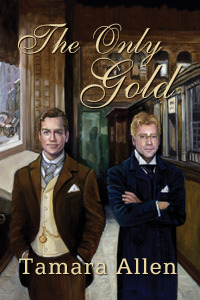Since I’m still buried under broken-down cardboard boxes and stacks of slightly wrinkled packing paper, two of my friends and colleagues from the New England Chapter of Romance Writers of America have agreed to fill in for me today. I am pleased to welcome Penelope Watson and Bobbi Ruggiero.
Penelope is the author of the Klaus Brother series, whose first two books are Sweet Inspiration and Sweet Magik, and an obsessive reader of romantic fiction. She loves paranormal and historical romance novels, and also reads romantic suspense, time travel, and even a contemporary from time to time. Penny’s favorite things include plants, weenie dogs, and beards (not necessarily in that order). Find her on Twitter @pennyromance or visit her Web site at www.pennyromance.com
Bobbi is an amateur wine aficionado, semi-professional groupie and vice president for the New England Chapter of the RWA. When she’s not chasing boys with guitars around the globe, she enjoys spending time with her very understanding husband and working on her award-winning manuscript about a dashing and swoony rock star who falls for the girl next door. Find her on Twitter @scorpiosister19 or visit her fledgling blog: baruggiero.tumblr.com
Please join Penny and Bobbi for a conversation in our comments section about fabulously imperfect books and other Magical Shit.
PENNY: Thanks to the ladies at Wonk-O-Mance for inviting me (Penelope) and Bobbi Baby (Bobbi Baby) to discuss an extremely wonky and disturbing topic. How two well-educated, well-grounded, and critical readers were completely bamboozled by the epic saga known as SWEET DREAMS, written by Kristen Ashley. We are going to attempt to dissect this topic in a scientific, rational and objective manner.
Bobbi Baby! *Penny sips martini* How ya doing?
BOBBI BABY: Oh, Penny, my Penny! Let me get settled… *Bobbi Baby takes out Screw Pull wine opener and grabs a bottle of Paraduxx* Did you ever notice how dirty the name Screw Pull sounds? But I digress….
If I look back at all the hours I’ve spent reading this book, talking about this book, recommending this book and laughing about this book, I could have likely finished my own epic novel. Maybe I could even have included a surprise child, serial killer, make-over theme, crazy ex-husband, near death experience and… WAIT, that all happens in Sweet Dreams. Sweet Jesus, I can’t seem to stop yammering about this book.
First of all, I blame you and Ruthie Knox for all of this ridiculousness. When I stumbled upon your Twitter conversation about Sweet Dreams, way back when, I felt left out. And then you strong-armed me into downloading it. You are both evil bullies.
I think we wanted to touch upon the term “Magical Shit.” (Can I swear in here? This is Wonk-O-Mance, for the love of all things sacred and holy! Surely I can cuss here and there?) Sweet Dreams is made out of all things magical. And just plain awful. All at the same time.
How does Kristen Ashley do this? How does she suck the reader in, keeping them hooked in spite of the endless sentences that begin with the same two words (chapter one, paragraphs two through seven: “I looked…” “I looked…” “I looked…” “I looked…” “I looked…” “I looked…” KA, we get it. Our heroine, Lauren, is looking), paragraphs of nothing but jewelry, hair and clothing descriptions (Lauren has a thing for peachy-pink crystal jewelry, beads, crew neck shirts with little ruffles on the neck and up the sleeves….), and so many grammatical errors that I was apoplectic by the end of chapter three (Oh, did I fail to mention how you and Ruthie told me that to get through the first three chapters is nothing short of a miracle? Say, along the lines of someone who has never run a day in her life, but all of a sudden wakes up one day and runs a Tough Mudder race? And I still rea d it anyway? What is wrong with me?).
d it anyway? What is wrong with me?).
The hook comes in the form of our hero, Tate Jackson. He puts the magic in magical shit. He’s all kinds of excellent. Surly, broken, bounty-hunting, injured ex-football star Tate. Swoon. He had me swooning all over the place from the moment he appeared on the page. (And he says “shit” a lot. All the time.) *Sips on glass #2 of Paraduxx*
PENNY: *sips mango martini*
I looked…..
Hee hee! Just kidding. OK. You’re right. Ruthie and I are evil. We knew the beginning of this book blew chunks, we knew there were POV problems, and huge grammatical errors, and piss-poor writing, and an overabundance of clothing descriptions, and we still coerced you into reading it.
My personal fave is how Tate’s dialogue at the end of the book uses the word “shit” as a noun, verb, adjective, adverb, and possibly pronouns. “Shit, it’s shittin’ shit that shit is shittin’ all over the shittin’ place. Shit.”
But I really like your term “Magical Shit” because there is something magic about this book. It’s addictive and entertaining and very engaging in spite of itself. In spite of the bad writing, rule-breaking, cussing, and confused and never-ending story lines.
I think you’re right that Tate has something to do with it. Creating a larger-than-life, romantic and rugged hero is a big bonus. But it’s more than that. There is something about the heroine’s journey that is appealing, too. Fat and dejected, she reinvents herself, falls in love, and helps others to heal. That’s pretty damned heroic. (And she does it all with a turquoise chunky necklace and wedge sandals).
Ahem.
BOBBI BABY: Babe! I’m back… *opens a bottle of Apothic Red and lets it breathe*
Yes, Lauren does save the entire town of Carnal, perfectly matched and accessorized, as all good heroines do!
Her makeover is the crowning makeover of all makeovers. She starts off as the slightly-overweight, cast-aside ex-wife with single-process color and becomes a totally bitchin’ biker babe with chunky highlights and a killer lingerie collection. It is a sight to behold.
But seriously, Lauren does rock. I realized that I was totally and utterly on her side the minute she decided not to take any shit from Tate. She handled his barbs and cutting remarks with grace and style. In fact, that initial exchange between her and Tate hooked me and kept me there, even throughout the plethora of plot twists, train wrecks and utterly ridiculous POV switches in the last few chapters. Lauren and Tate’s romance is actually pretty great. He’s broken, angry and has lost his dream of being a football star. She’s a scorned, sad ex-trophy wife on the run from her past. And, somehow, through some pretty good storytelling, Ashley convinces us that more than anything, these two people deserve a happily ever after. And the reader is rooting for them the entire way. Through all 1,456,789 pages...
(It also helps that I pictured Tate as Joe Manganiello. Just sayin’.)
*Penny polishes off mango martini and starts mai tai……*
PENNY: Joe as Tate! Oh yeah!
I totally agree about liking how Lauren refused to take any crap from him, in spite of being smitten with him. The part that got me hooked (even as I was considering DNFing this baby. Babe. Hee heee!) was when Tate said (I’m paraphrasing)….“I know you heard the stuff I said about you—calling you fat and frumpy–just let it go. Move on.” For some reason, that whole interaction really intrigued me. I’d never seen that before in any romance novel. It was a cool way to start their relationship….as a reader, you were thinking, “Well how the heck is Kristen Ashley going to get these two together now?” But she did. In a really superb way.
So, in conclusion (*huge sip of mai tai*), in spite of suspect writing, overabundance of inane details, a length roughly equivalent to the entire Encyclopedia Britannica, cussing, too many storylines and POVs, and over-use of the term “babe,” I still totally loved this book.
So sue me.
BOBBI BABY: *Polishes off the Apothic…* (I think maybe we have a teensy, tiny drinking problem?)
I agree wholeheartedly. I loved this book. Despite its plethora of mortal writing sins, I thought it was a pretty damn good story. I certainly won’t be re-reading it anytime soon, because I don’t think I can lose another month of my life, but I have to say, the story has definitely stayed with me. For instance, when I’m getting dressed in the morning and looking at my jewelry, I think, “How would Lauren accessorize this outfit?”
But seriously, somehow, Kristen Ashley made this crazy book work! And when I’m working on my own stories and find myself tangled up in too many plot lines, or wishing I could just change the POV for the love of God, I often think, if Kristen Ashley could do it, why can’t I?
P.S. This needs to be made into a movie. Sure, it would have to be a five-part epic extravaganza, but if I could look at Joe Manganiello for that long, I’d be more than happy to suffer through.
PENNY: Mov-ie! Mov-ie! Mov-ie! Joe-y! Joe-y! Joe-y!
(Hey, if they can make a movie out of 50 Shades, then why not Sweet Dreams? Although I don’t think Lauren would EVER be caught dead in any shade of grey.)
…..And that concludes this totally professional, scientific analysis of SWEET DREAMS. Babe. I ain’t shittin’ you,
Most sincerely,
Penelope and Bobbi Baby

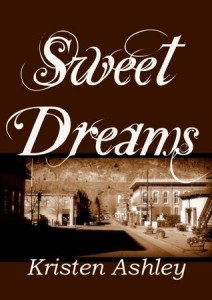

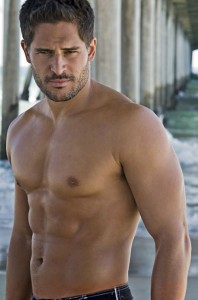
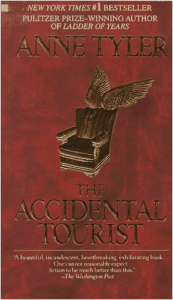
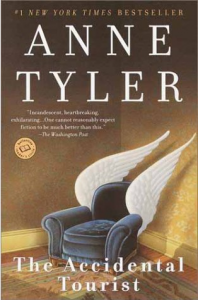
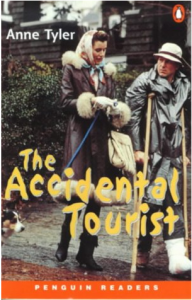
 Let me tell you about Jonah Woolner. He’s thin, he’s dour. He’s punctual. If staid could be a superpower, it would be his. This is the 1920s in New York during winter. Jonah has worked at the same bank for seventeen years, slowly and steadily moving up.
Let me tell you about Jonah Woolner. He’s thin, he’s dour. He’s punctual. If staid could be a superpower, it would be his. This is the 1920s in New York during winter. Jonah has worked at the same bank for seventeen years, slowly and steadily moving up.